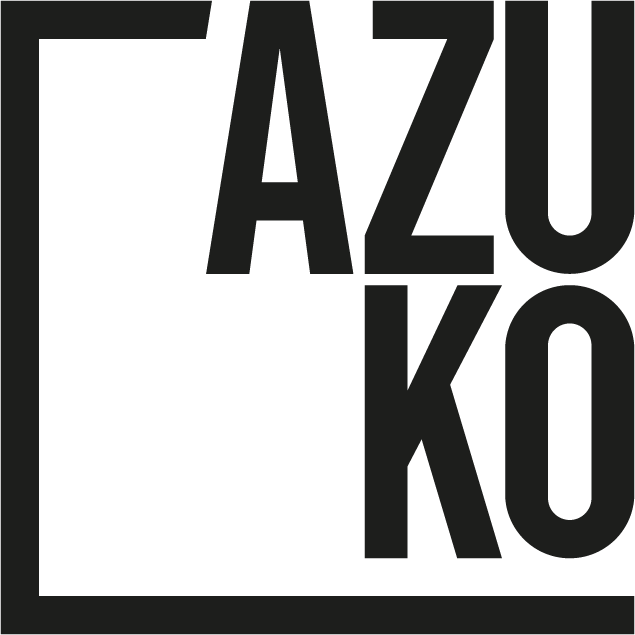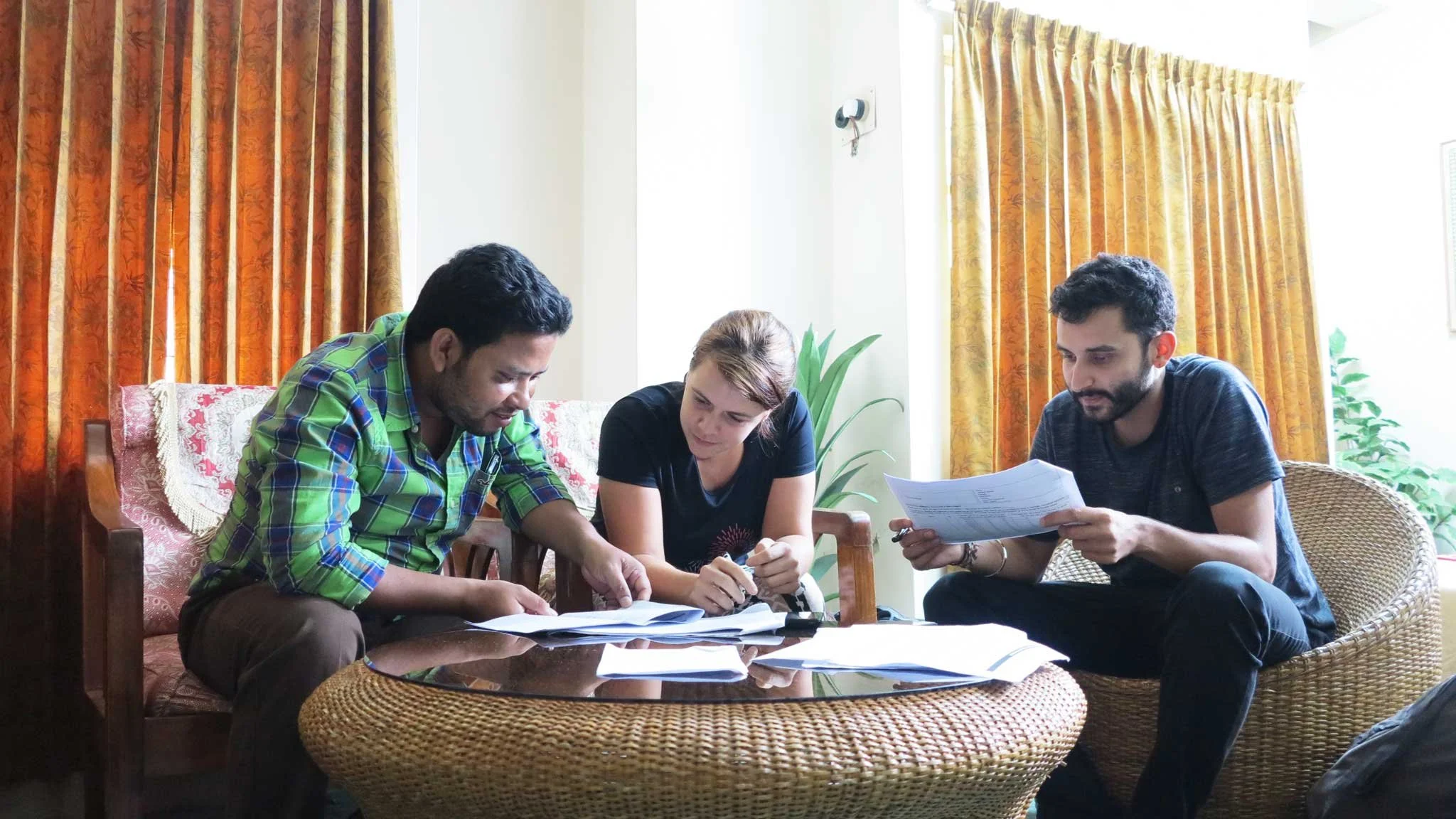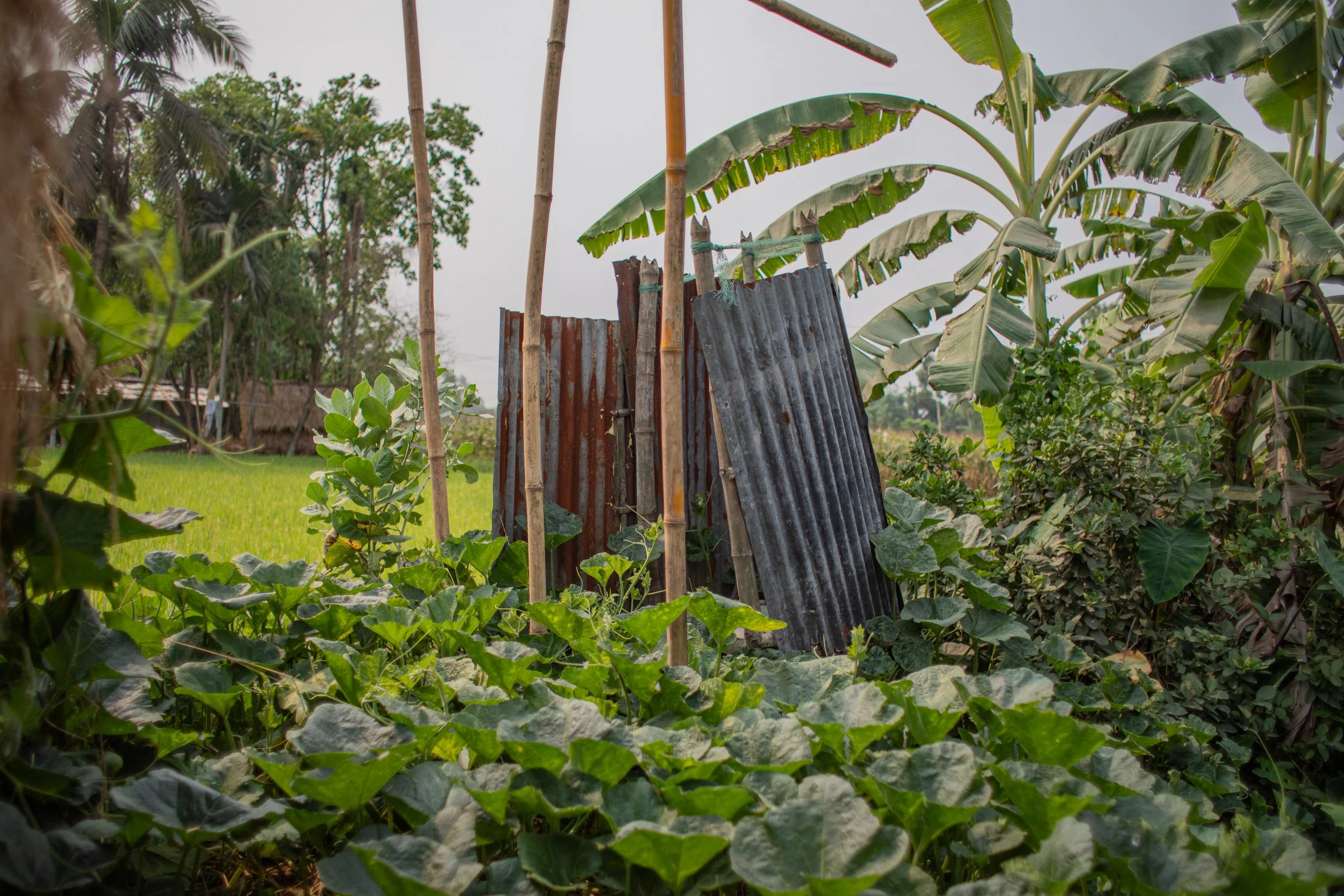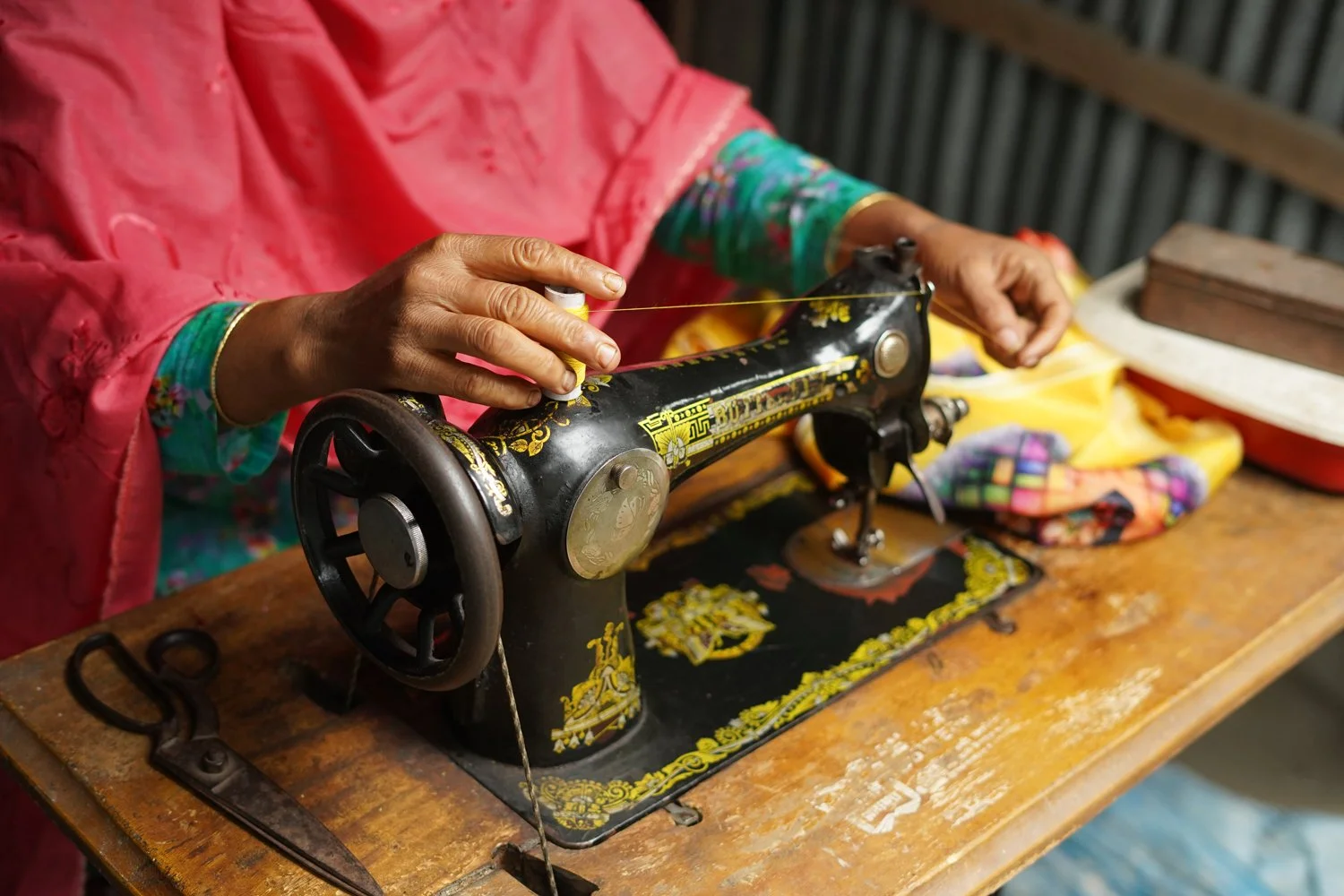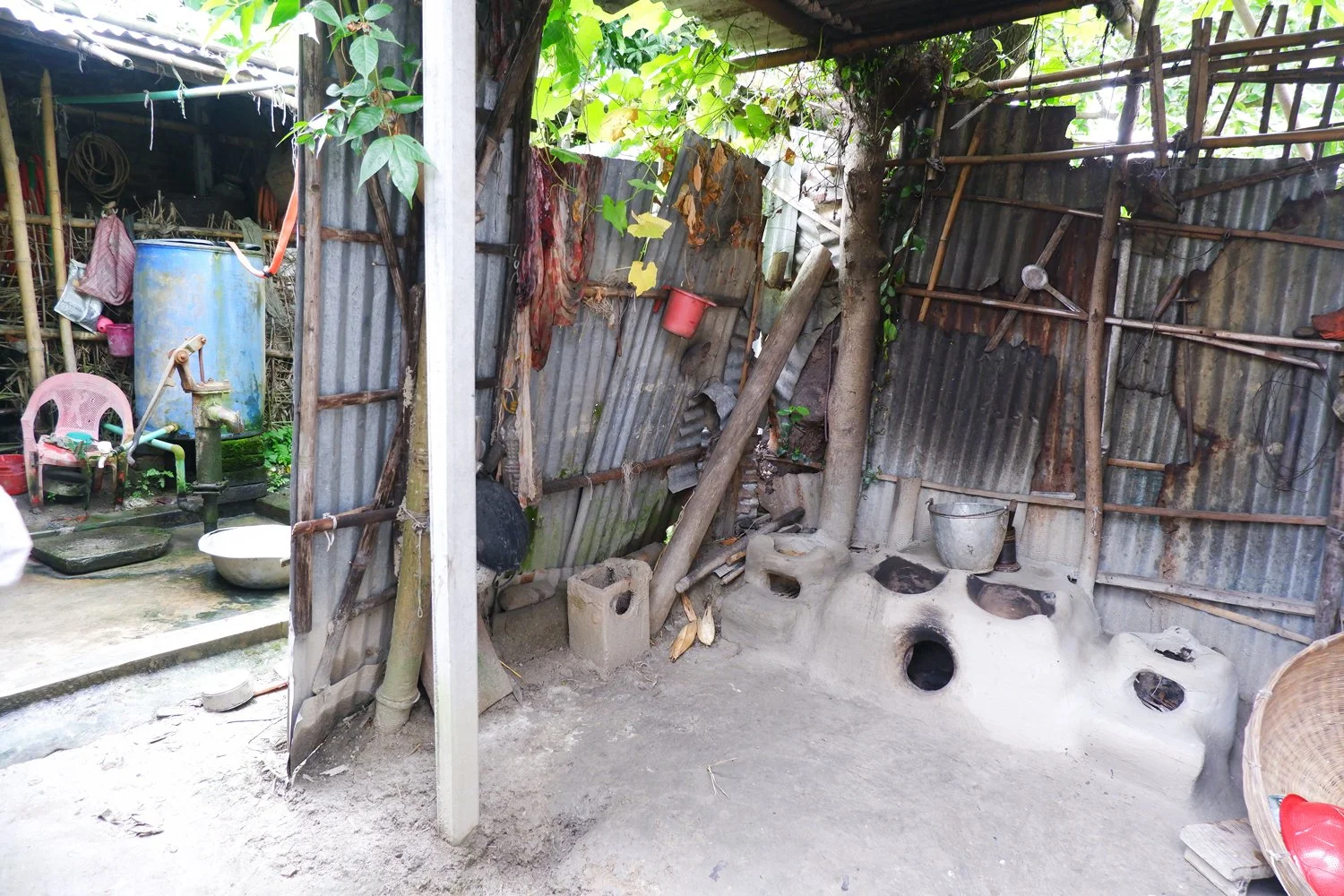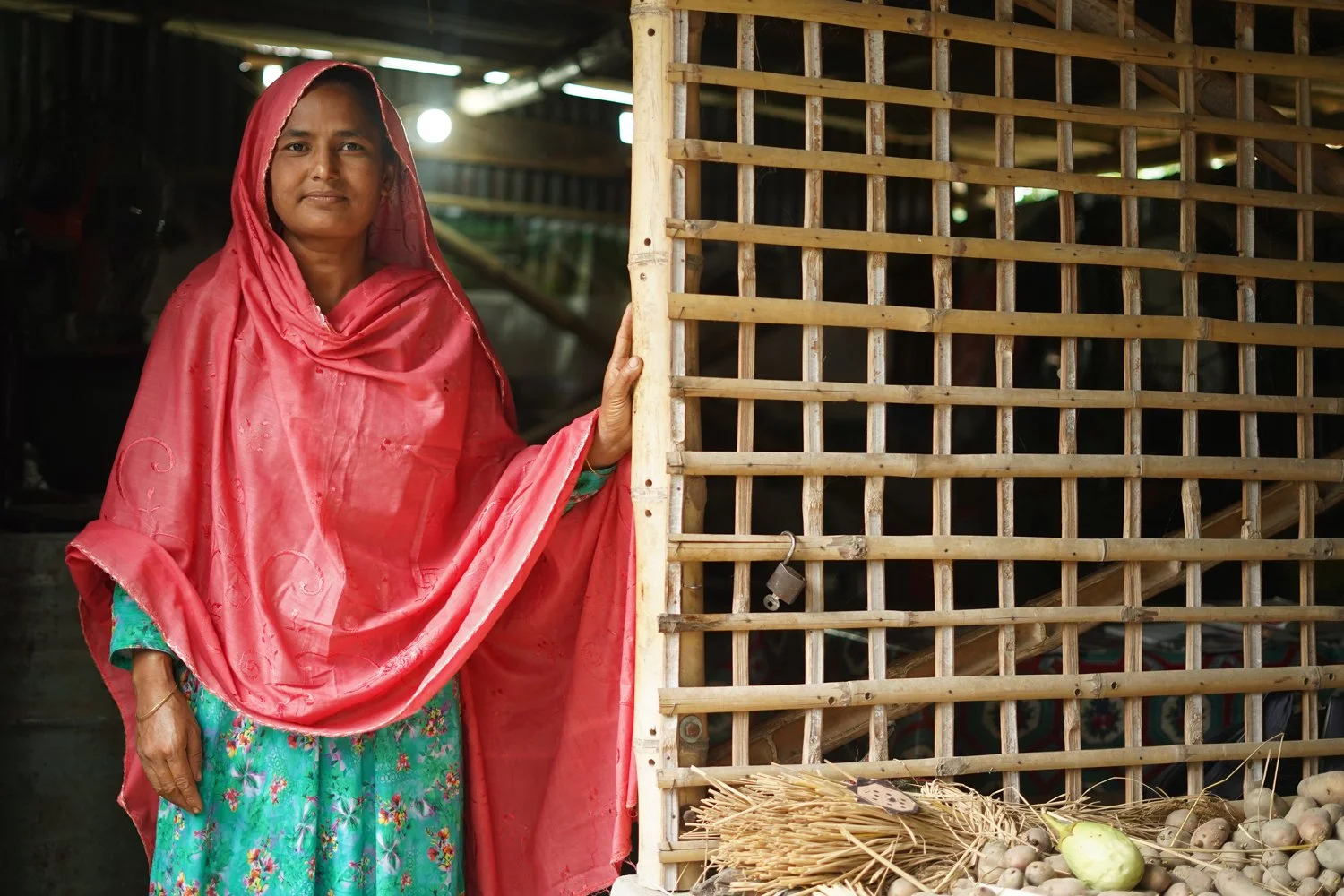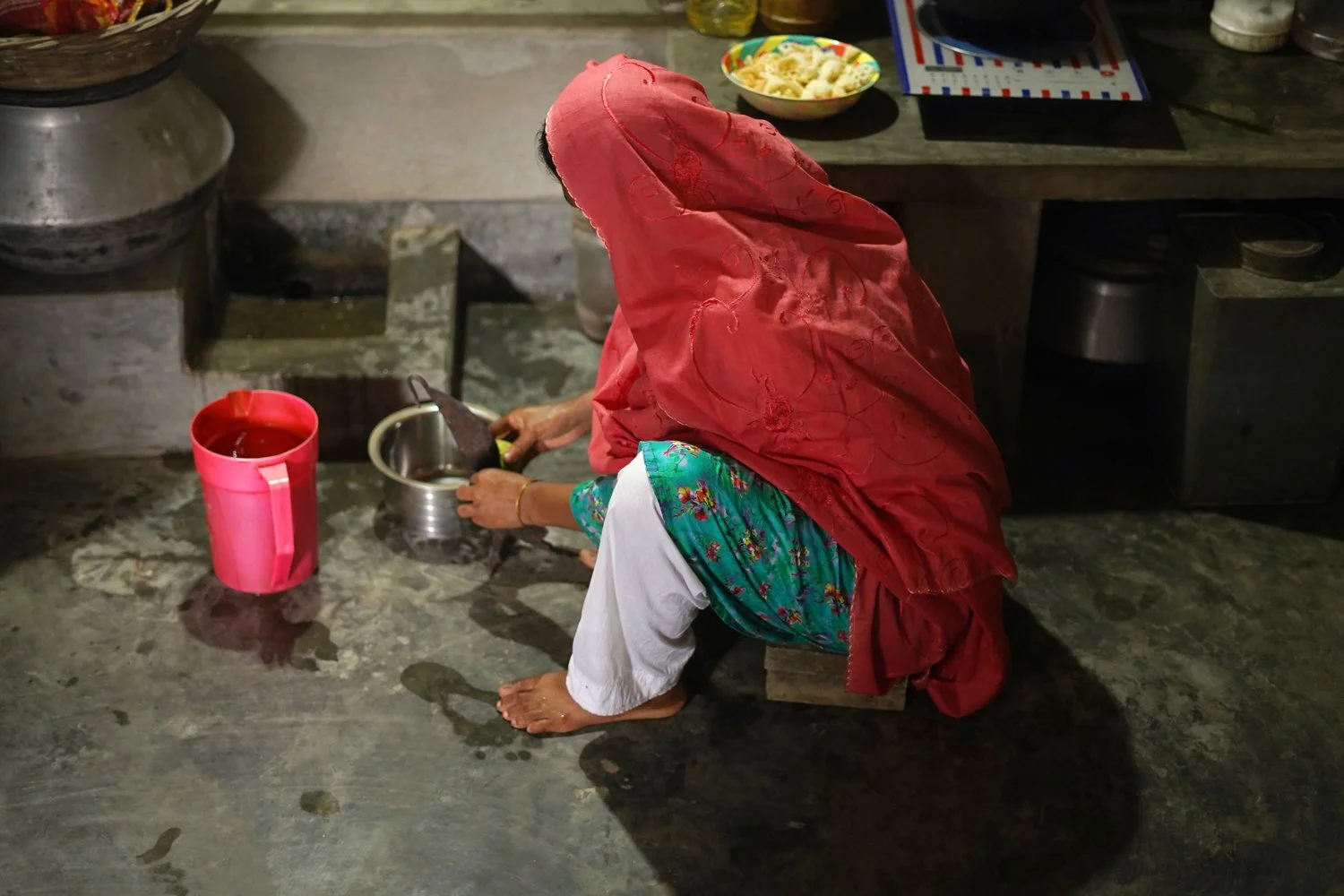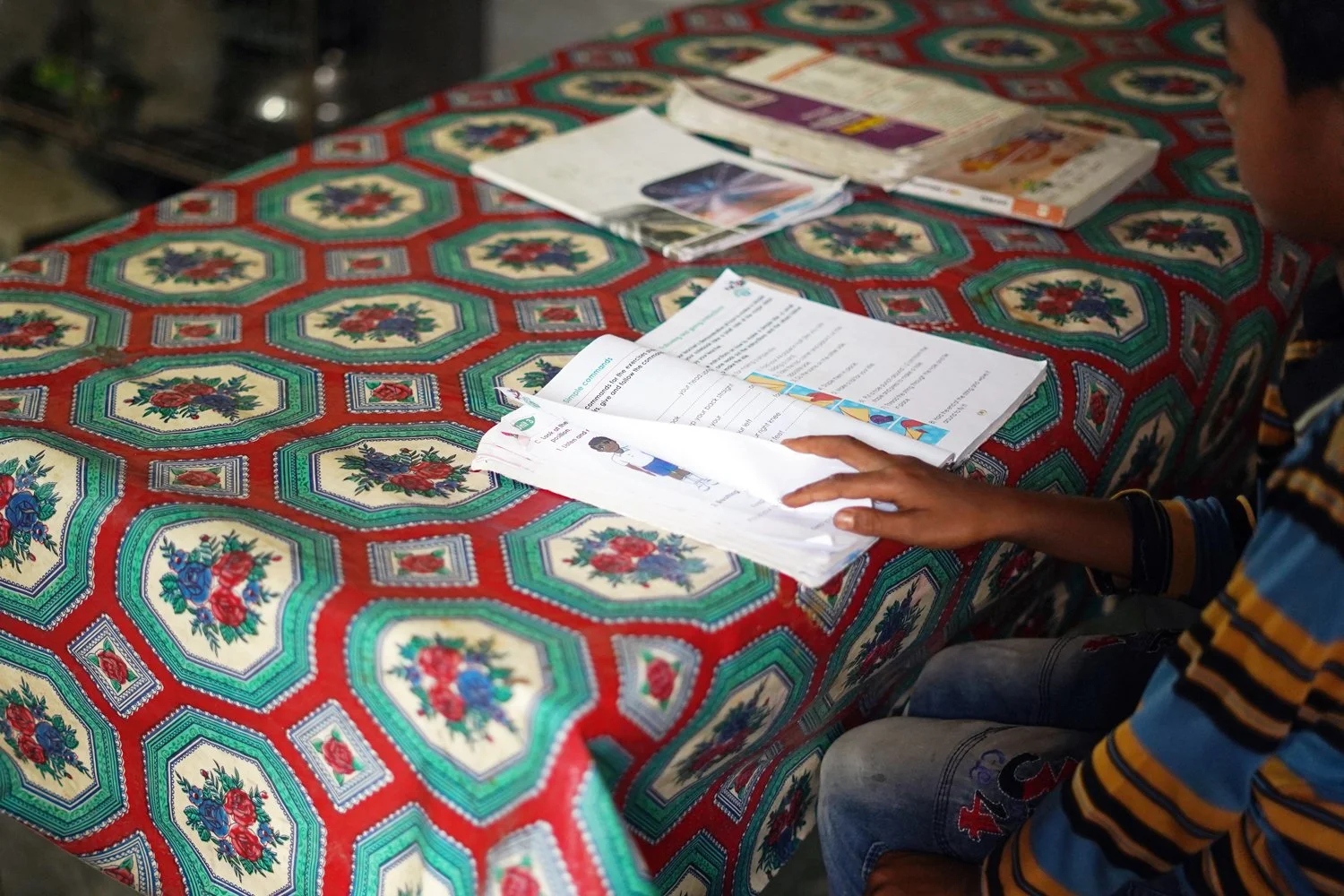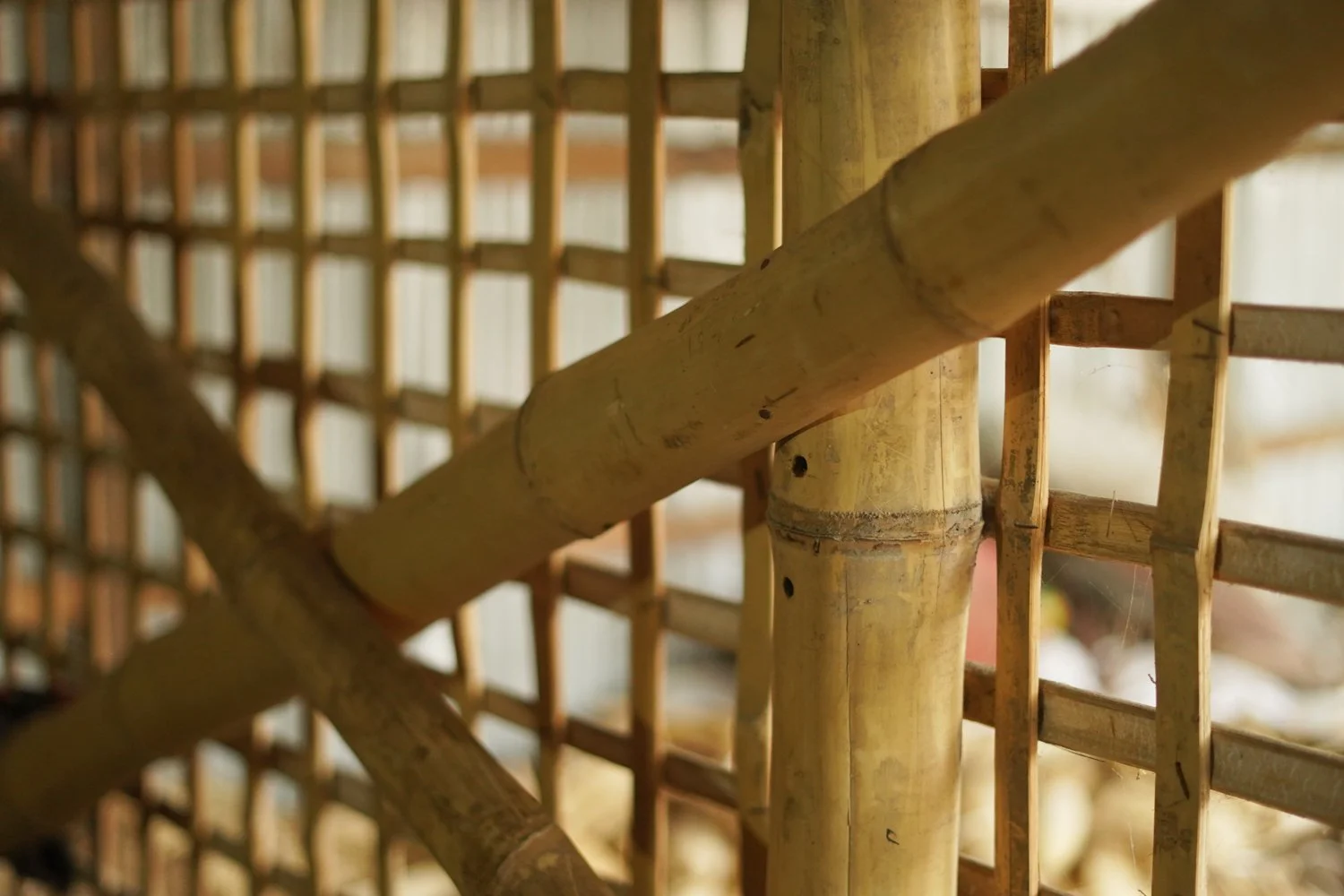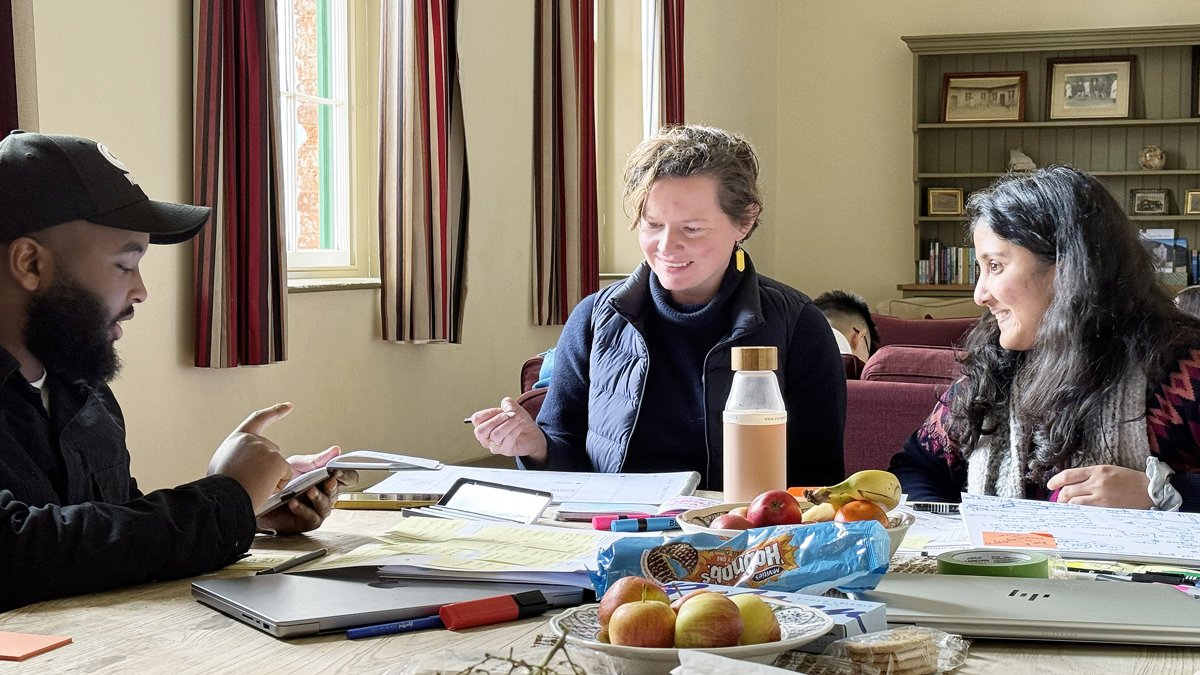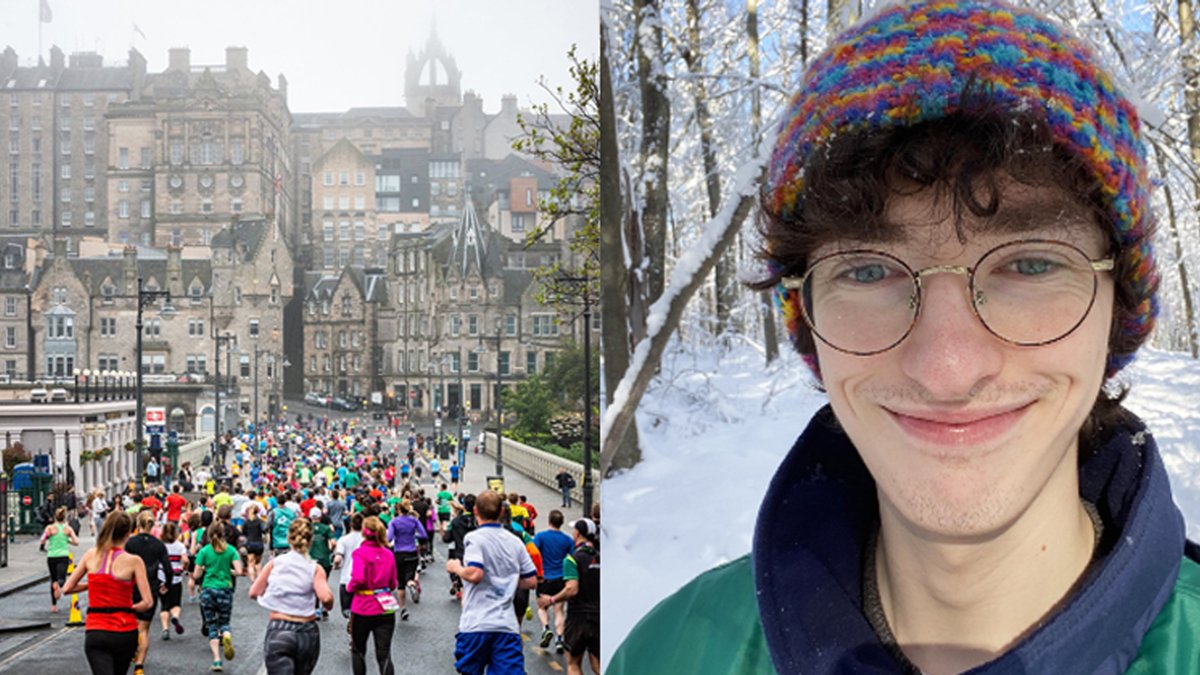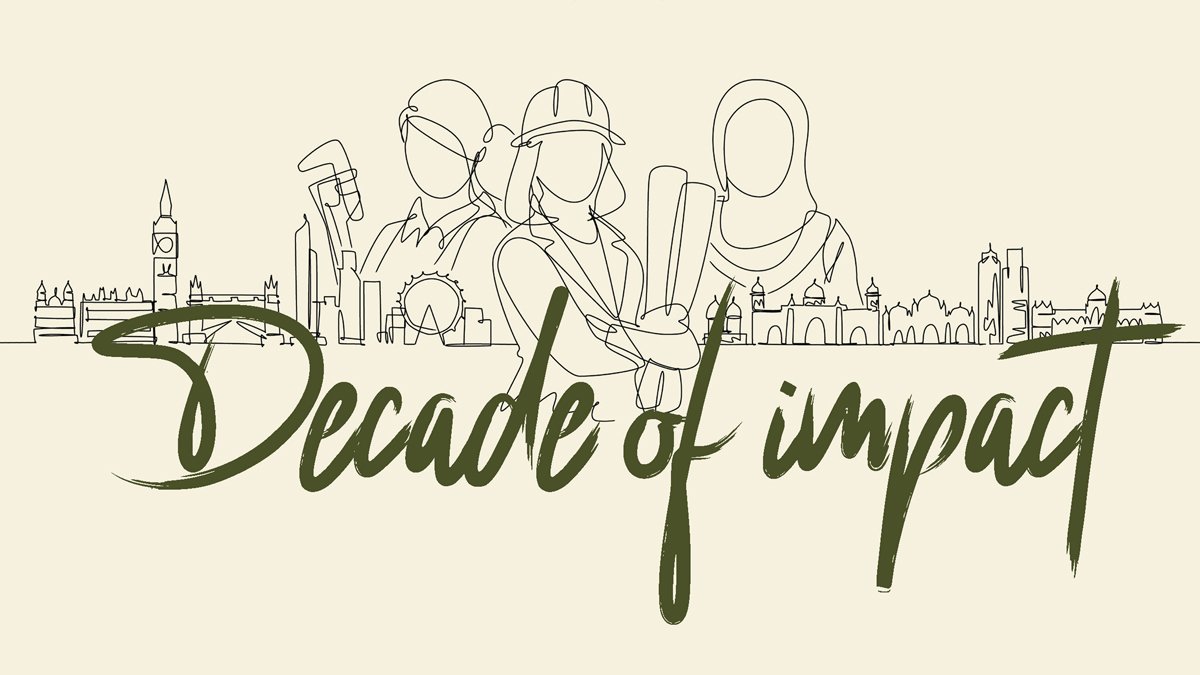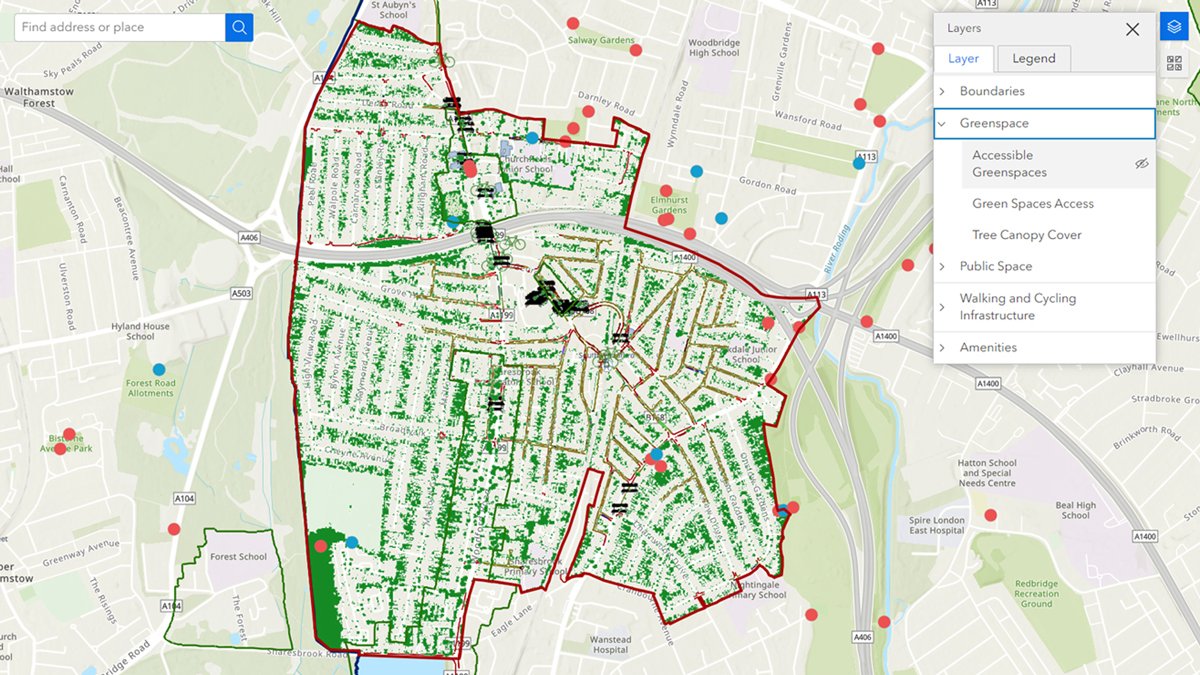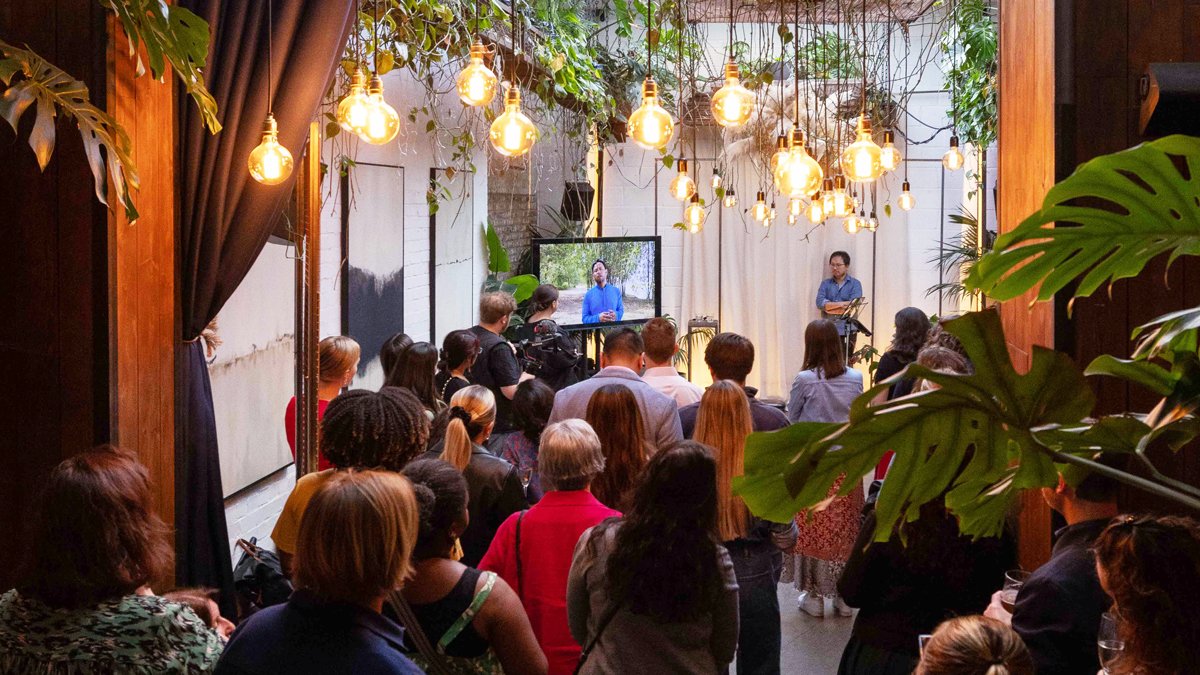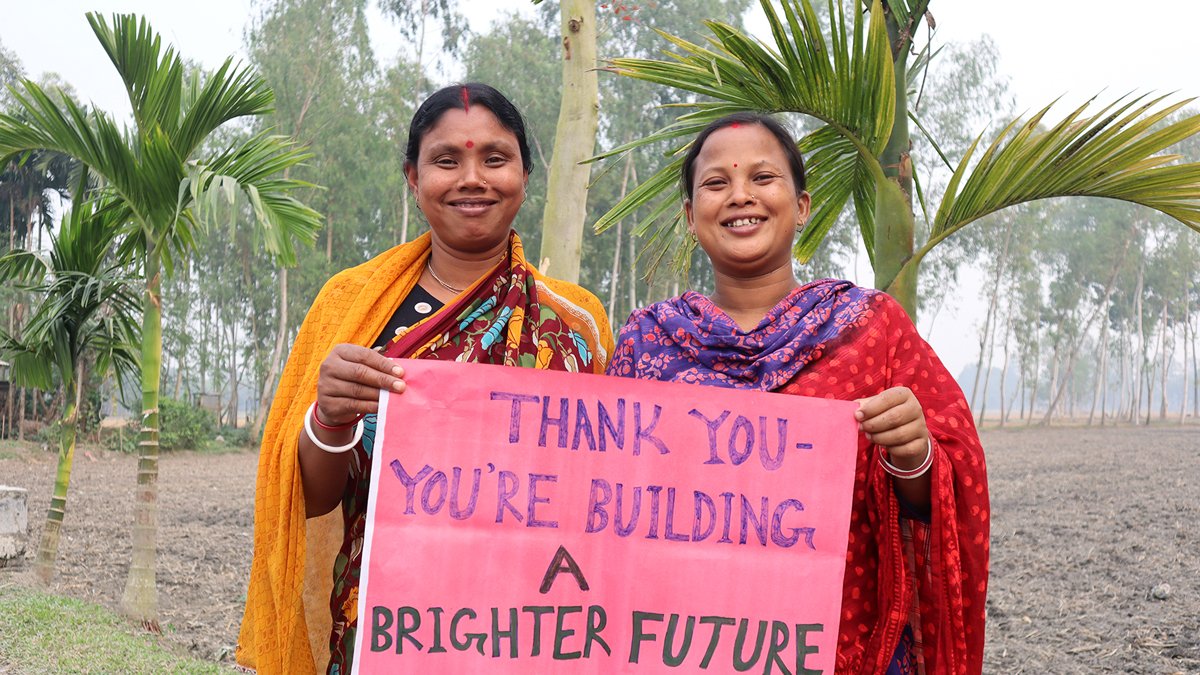Sitting down with Amena in her home, the first thing we notice is how alive the place feels.
Strings of onions hang in neat clusters from the roof. Garlic dries on the floor. In one corner, a mound of potatoes waits for market; in another, a sewing machine stands ready for work. The walls are patched with colourful landscapes cut from old calendars, bringing the world indoors. Every inch of space is used with care and purpose.
Amena lives in a village in rural northwest Bangladesh with her two sons. She’s a skilled tailor, making clothes for her family and selling salwar kameez to her neighbours. Her community is a close-knit mix of Hindu and Muslim families who celebrate together and look out for each other. Most earn their living as agricultural day labourers — a life of hard work for little pay.
All around the village, tall chimneys from brick factories rise above the fields. These traditional, outdated kilns burn coal and wood, releasing thick black smoke into the air. The pollution damages crops, contaminates soil, and worsens the already fragile climate. Farmers like Amena struggle to grow staples such as rice because the falling ash and poor air quality damage the plants before they can mature.
Amena’s life has been shaped by loss and resilience. In 2017, while she was in the capital Dhaka receiving treatment for cancer, floods swept through her village, destroying her home. They rebuilt what they could, but their house remained fragile. Then, in 2021, tragedy struck again — Amena’s husband died, taking with him not only her life partner but the family’s main source of income. She sold everything she could — belongings, animals, land — just to survive.
“I had no financial support at the time. I learned if I have to do something, I can stand by myself. I just need the opportunity.”
That opportunity came when Amena joined AzuKo’s construction training. Using her new skills, she has built a stronger, safer kitchen — one that has transformed her daily life. She invested 6,000 BDT (£53) of her own money into the project, determined to contribute to her family’s future.
Her new kitchen is a far cry from the crumbling, smoky space she once cooked in. It now has solid foundations, crossbracing, and strong joints. There’s an electric stove, lights to cook under at night, a water station, and room to gather.
It’s the heart of the home — a place to talk, do homework, share meals and welcome guests.
Gone are the days of collecting firewood, breathing in smoke, and preparing meals on an unhygienic earth floor. Cooking is easier, faster, and safer. Amena now has more time to spend with her children and on her land, where she raises cows and chickens, and harvests rice and corn.
She has also joined a women’s savings group, supported by AzuKo. Every month, she puts aside a small amount, knowing she can access a low-interest loan if disaster strikes again. This safety net has given her peace of mind for the first time in years.
Amena’s dream is simple yet powerful,
“I can’t dream for myself — only for my children. I want them to get a good education and have a better life.”
She hopes one day to buy her own land and build a new, forever home, using everything she’s learned.
With your support, more women like Amena can turn hardship into hope. Give what you can, today →
